|
KING CHARLES III by Mike Bartlett Oxford Theatre Guild Wesley Memorial Church, New Inn Hall Street, Oxford, OX1 2DH 24-29 September 2018 Queen Elizabeth II has died and, after decades of waiting, Charles has finally become king and is anticipating his coronation in a few weeks' time. Into this future setting Mike Bartlett sets his story about an imagined political and constitutional crisis that endangers the very future of our constitutuional monarchy as we know it. A parliamentary bill that will bring in draconian restrictions on the freedom of the press has passed both Houses of Parliament and is awaiting Royal Assent. But Charles refuses to sign, fearing serious consequences for freedom of speech. The Labour Prime Minister protests that the King is obliged to sign. The Conservative Leader of the Opposition agrees publicly, but plays a more subtle game in private. A constitutional stand-off results: Charles remaining stubborn in his refusal; the Government threatening to legislate to remove the requirement for Royal Assent for all future bills. Charles attempts to use his theoretical power to dissolve Parliament and call a general election. A divided Parliament (mainly) refuses to disperse, and rioting and civil disorder break out across the country, splitting the nation down the middle. In the end the Duke of Cambridge forces Charles to abdicate and the newly crowned King William V promises to sign the bill, thus ending the crisis and preserving the last vestiges of royal authority. Into this inventive political thriller, Bartlett weaves a family crisis of father against son, exploring the personal characters and tensions of those most intimately involved - figures who are normally protected behind a wall of protocol. Thus we have a hesitant, cautious Charles (Andrew Whiffin) who finally makes a public stand on a matter of principle; a loyal Prince William (Ian Nutt) who is forced to betray his father for the greater good of the kingdom and the monarchy; a rather devious and scheming Duchess of Cambridge (Kelly Ann Stewart), who sees her chance to exercise political influence through her husband; and a disaffected Prince Harry (Chris Cooper), who wants to escape the gilded cage of his life as a royal where he is without any immediately obvious role in life. One aspect of the play that marks it out as unusual in contemporary drama is that it was written in iambic pentameter. This is a deliberate aping of a Shakespearean history play and it succeeds as such. I found that the verse raised what could have been a ranty, wordy and worthy play to a higher realm where human drama and genuine dilemmas of high principle can be considered separately from the cut and thrust of party politics. It's amazing what heightened language can achieve. Director Dan Whitley chose to stage the piece in traverse (for the uninitiated, that is where the audience sits facing in on either side of a central stage area, in this case, the central aisle of the Wesley Memorial Church). This was an inspired choice, as it enabled the production to exploit the very long, grand space between the audience seating areas in many different ways. The distance from one end to the other was far longer than any distance on a conventional stage, which was a gift, given the grand scale of settings such as Westminster Abbey, the House of Commons and royal palaces. But the narrowness of the stage area simultaneously gave the performance an intimate feel to it, appropriate to the family saga being presented to the audience. Chris Cooper's lighting and sound design exploited the venue well, and enhanced Dan Whitley's vision in a smooth, seamless fashion. The music was an unsurprising selection of British pieces for royal occasions, but was not laid on with a trowel and avoided feeling cliched. Amber Slaymaker's costume design included some wonderful military uniforms for Charles and his two sons to wear, but the opening funeral procession was perhaps the best opportunity to see her well judged work on full display. The aisle of the venue was a perfect catwalk. So we come to the performances of the principals. The director was fortunate to have such an array of talent at his disposal. Andrew Whiffin's King Charles brought us a sympathetic portrait of a well-intentioned but tortured individual who finally tastes the cup of kingship only to be disappointed and disillusioned. It was a splendid performance that gave us a view inside the King's mind: an idealist who is perhaps too naive; a gentle soul who stands firm on a point of moral principle. Ian Nutt's Prince William displayed his father's caution, and was convincingly appalled when asked to counsel The King to change course, seeing it as a show of disloyalty. This prince was quietly spoken and diplomatic, but in the end showed his steel. We felt his sorrow at his betrayal of his father - not a crowing usurper, but a fond son. The Duchess of Cambridge was played by Kelly Ann Stewart, who was a convincing doppelganger for the real Kate. In fact, there was a slight ripple through the audience when she first appeared. Appearances aside, Kelly gave us a Kate who stands not only by her man, but behind him too, giving him a hefty shove towards the crown. Warm and charming, mixing an acquired royal confidence with the down-to-earthness of her previous life, this Kate was likeable until...until she went a bit Lady Macbeth in a wonderful soliloquy that envisaged two crowns at the coronation (one for William and one for her). She told us how she would build her own power from behind her husband's. There was a Macchiavellian glint in the eye. A lovely transformation. It was at this moment that the play felt at its most Shakespearean to the present writer. Chris Cooper's rebellious Prince Harry was a likeable, frustrated and vulnerable protagonist in the play's bitter-sweet comedy-romance sub-plot. Falling for Jess (a feisty performance from Eliza Burrows), a young woman with strong republican sympathies, Harry sees her as his escape vehicle from the Royal Family to a new, ordinary life with a regular job, mortgage and family home, free from princely titles and a straightjacket of protocol. Well, they say the grass is always greener... But it ends badly when Harry has to give up Jess for the sake of his brother and re-establishing the stability of the family firm. At the coronation, Jess arrives and asks Harry where she is sitting. A mortified Harry has to explain that there is no place for her. Chris's tortured expression and body language nailed the moment with stillness. Two other actors deserve especial praise. Liz Bishop turned in a brilliant performance as Francis Evans the Prime Minister. Here was a politician at home with the horse-trading and banter of political life up against a man for whom she had to maintain diplomatic respect, even as he presented an obstacle to her political ambitions. Liz was particularly good at slow-burning, suppressed annoyance. A very strong performance.
Finally, Paul Clifford as James Reiss, the Palace press secretary - a wonderful Sir Humphrey-esque figure. Here was a smooth operator, never lost for words, always three steps ahead of the other side. The ultimate troubleshooter for the King. Paul seemed to inhabit this character and it was clearly as much fun to play as it was to watch. King Charles III is a play that I had wanted to see for some time and I am glad that I have now done so. Oxford Theatre Guild can feel proud of themselves for offering us an intelligent political and personal drama, sensitively played and imaginatively staged. God Save the King! Photos courtesy of Oxford Theatre Guild
0 Comments
Leave a Reply. |
About the Author
Mike Lord has been involved with amateur theatre for over twenty years, mainly as an actor but also, more recently, as a director. Archives
July 2019
Contact me
Please use the Contact Form for anything apart from comments on blog posts. |
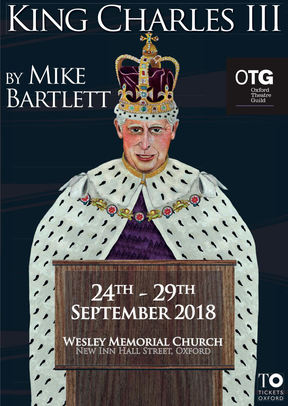
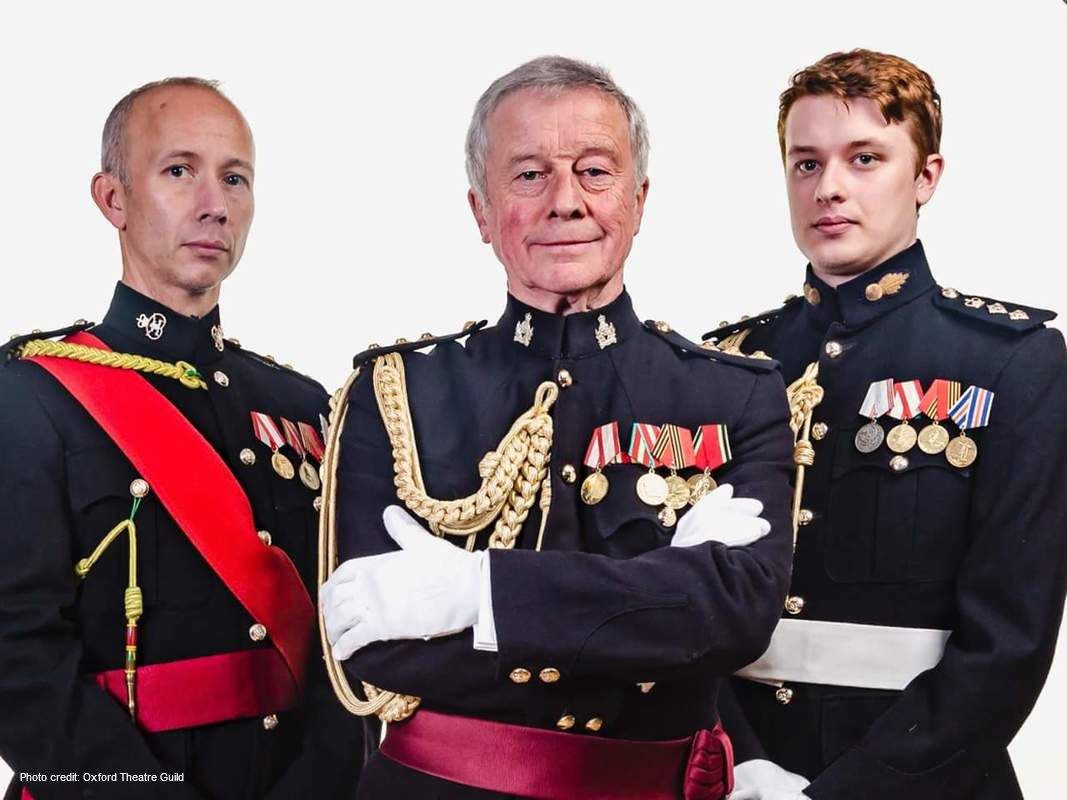
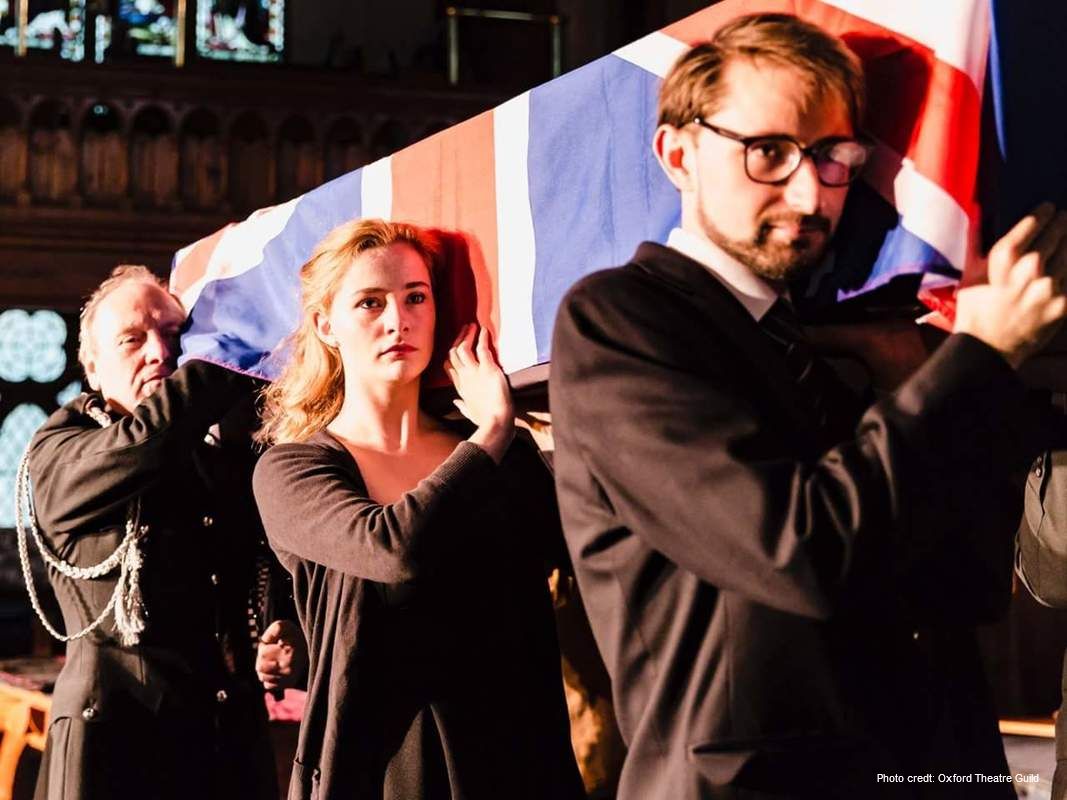
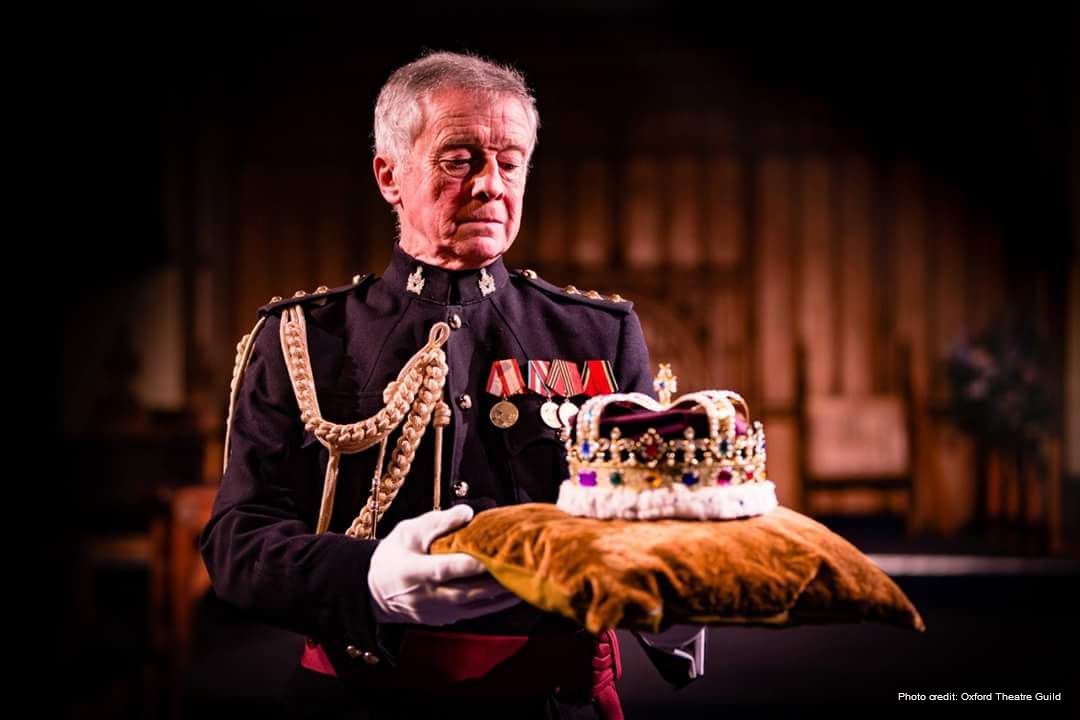
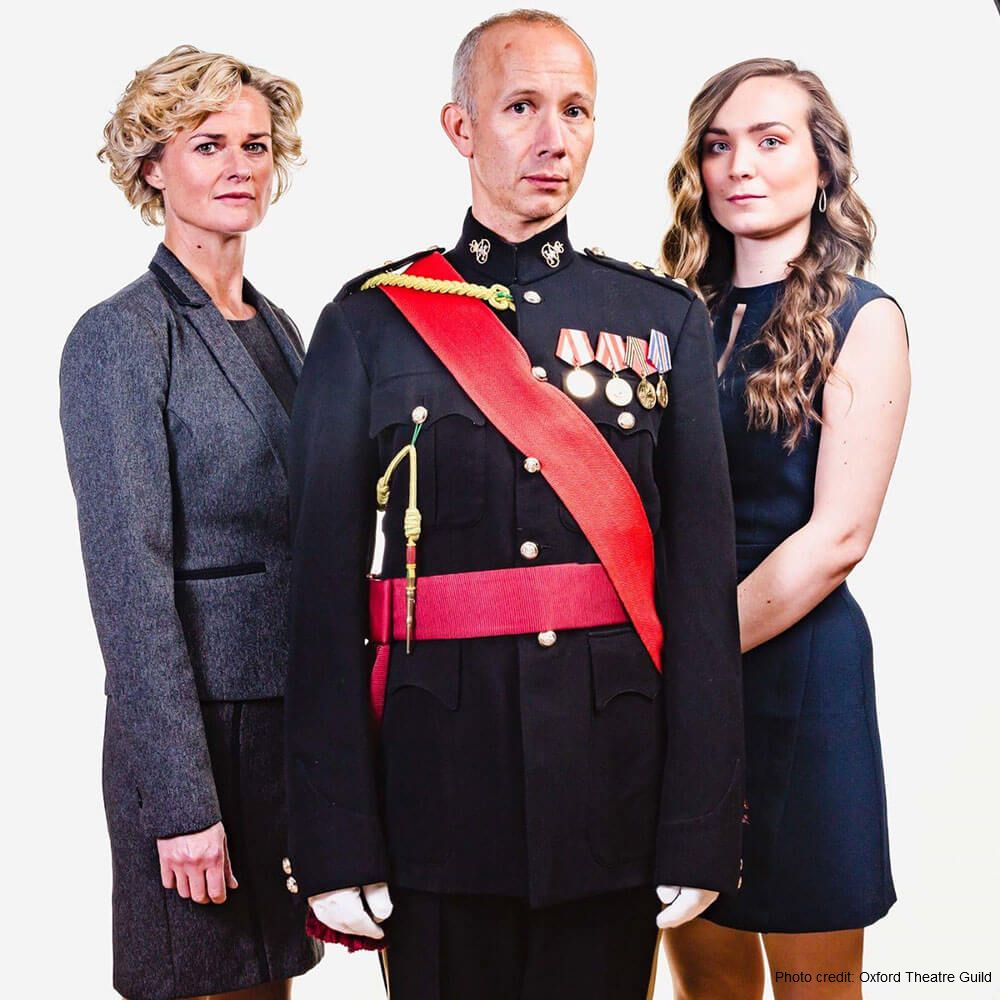

 RSS Feed
RSS Feed
